Director of the Department of Health Nay Phi La said that in recent years, the health insurance benefits of participants have been increasingly expanded, the level of health insurance benefits and the quality of health insurance examination and treatment have also been increasingly improved, and patients have access to many modern medical services.
The recently revised Law on Health Insurance allows health insurance participants to enjoy 100% of medical examination and treatment costs at all initial registration facilities nationwide, helping to remove geographical barriers and create maximum convenience in accessing medical services. In particular, cases of serious and rare diseases can be transferred directly to specialized facilities while still being fully covered by insurance, contributing to improving treatment effectiveness, reducing financial burden and affirming the spirit of putting patients at the center of national health security policy.
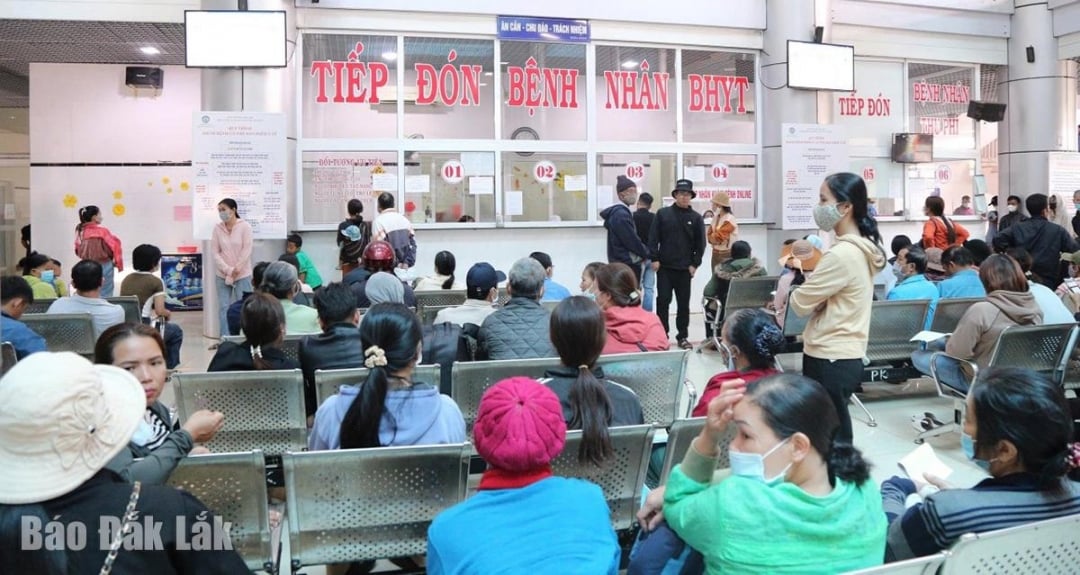 |
| People register for medical examination using health insurance at the Central Highlands General Hospital. |
In addition, the amended Law on Health Insurance has added, allowing participants to pay for remote medical examination and treatment, support for family medicine examination, home medical examination and treatment, rehabilitation, periodic pregnancy examination, and childbirth. Notably, the Health Insurance Fund will also pay for the cost of transporting patients between medical facilities, instead of only supporting transportation from district level to higher level as before. Costs for drugs, technical services, equipment, medical supplies, etc. are also guaranteed to be covered more fully.
According to Resolution No. 202/2025/QH15 of the National Assembly on the arrangement of provincial-level administrative units, the entire natural area and population of Phu Yen and Dak Lak provinces will be arranged into Dak Lak province (new) with a population of over 3.3 million people. With a large area, large population, and difficult living conditions in some areas, the amended Law on Health Insurance has created an important step forward and brought many practical benefits to local people. The new regulations demonstrate innovation, flexibility and humanity in health insurance policies, aiming at the goal of providing health care to all people in a more effective and sustainable way. However, for these policies to truly maximize their effectiveness, there still needs to be synchronous coordination between management agencies, medical facilities and people in the implementation process.
According to Nguyen Dang Giap, Director of the Central Highlands General Hospital, when people went to a hospital outside their designated area for medical examination and treatment, their health insurance benefits were often reduced. However, according to the new regulations, some special cases are still entitled to the maximum health insurance payment.
The first group to enjoy 100% health insurance benefits are those who are examined and treated at the grassroots level (commune health stations, hospitals, regional health centers under the Department of Health) or at the specialized level (central hospitals and some highly specialized provincial hospitals) who are diagnosed to treat a number of serious diseases, rare diseases, requiring surgery or high technology according to regulations of the Ministry of Health . This list of diseases has been issued by the Ministry of Health, including 62 types of serious and rare diseases such as: infectious diseases, cancers, neurological diseases, cardiovascular diseases, lung diseases, skin diseases, congenital malformations and special conditions (anti-tuberculosis drug resistance, war sequelae, or organ transplant conditions).
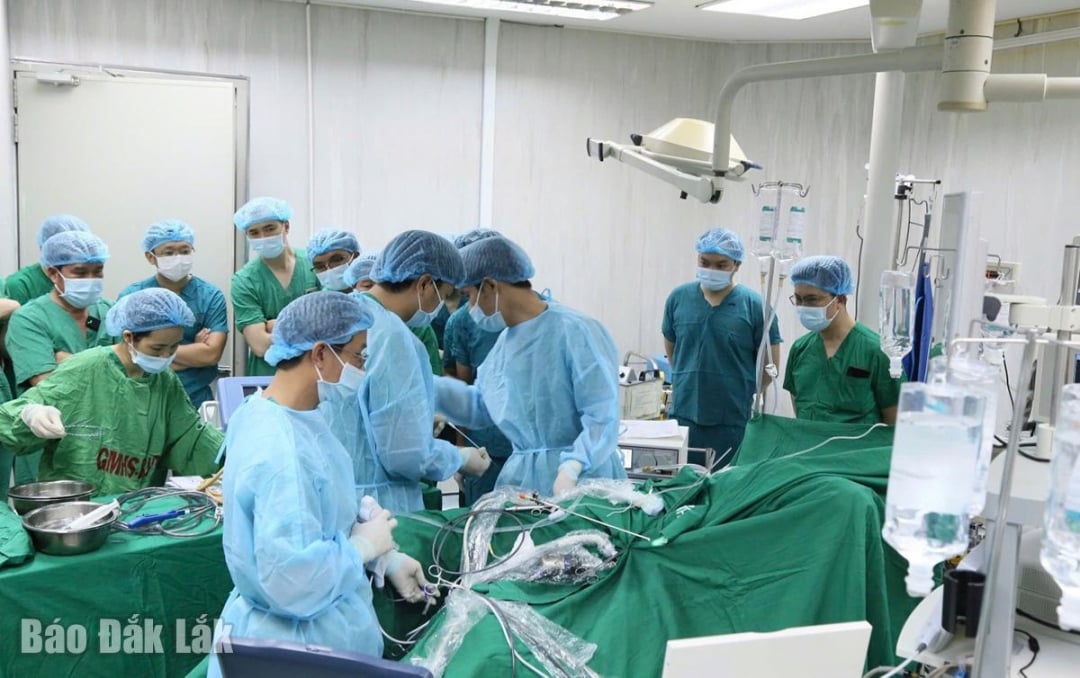 |
| Doctors at the Central Highlands General Hospital perform small tunnel endoscopy for patients. |
The second group that enjoys 100% health insurance benefits are those who participate in medical examination and treatment at the initial registration facility nationwide; inpatient medical examination and treatment at facilities with basic health insurance nationwide; medical examination and treatment at any facility with basic or specialized health insurance before January 1, 2025 that has been identified by competent authorities as district level.
"In reality, for people with serious and rare diseases according to the list prescribed by the Ministry of Health, diagnosing and correctly identifying the disease code is not easy, especially at the grassroots level (related to many issues of drugs, medical supplies, and medical staff). The policy of receiving health insurance outside the designated area is only applicable to cases that have been previously diagnosed. As for diseases that are being monitored and have not been diagnosed, they cannot be transferred to another facility. The revised Law on Health Insurance is a major policy, so as soon as there are specific instructions from the Ministry of Health, the hospital will implement it to ensure timely benefits for patients. However, patients need to clearly understand the revised Law on Health Insurance, especially the content of transferring to another facility for serious and critical illnesses. Not all diseases can be examined and treated outside the designated area to avoid wasting time, effort, and money," added Nguyen Dang Giap, Director of the Central Highlands General Hospital.
Source: https://baodaklak.vn/xa-hoi/202507/chinh-sach-bao-hiem-y-te-moi-mo-rong-tuyen-nang-muc-huong-ccb007a/






![[Photo] Hanoi morning of October 1: Prolonged flooding, people wade to work](https://vphoto.vietnam.vn/thumb/1200x675/vietnam/resource/IMAGE/2025/10/1/189be28938e3493fa26b2938efa2059e)

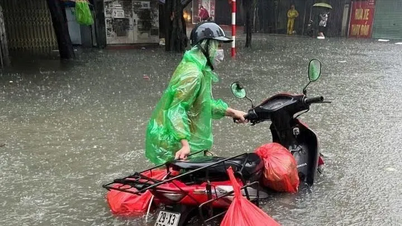

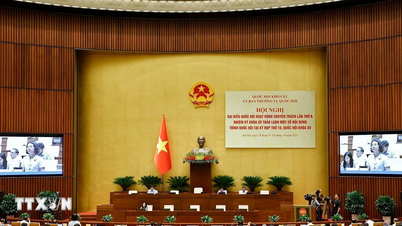

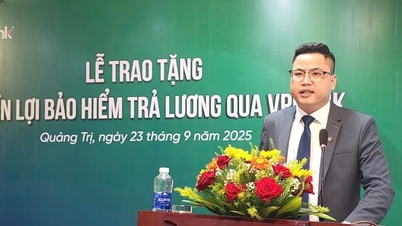





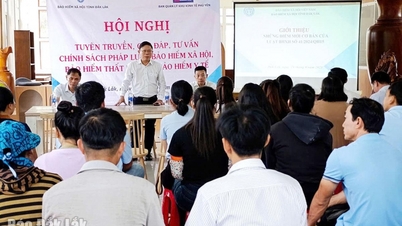
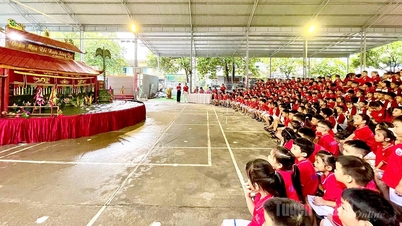



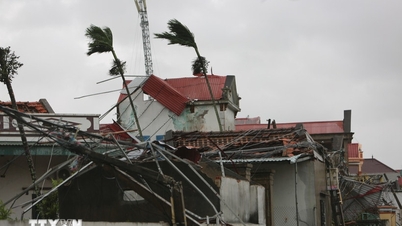

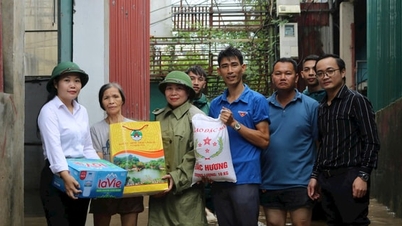
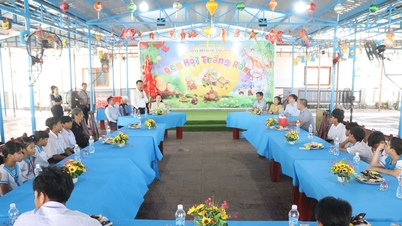

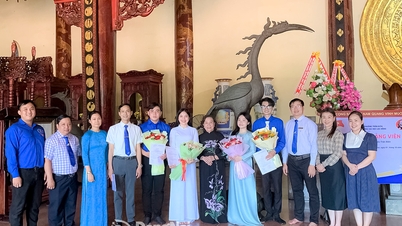





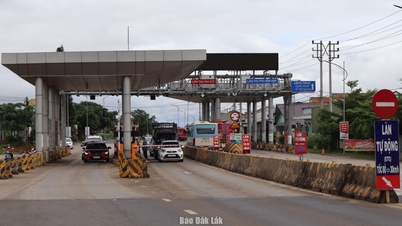
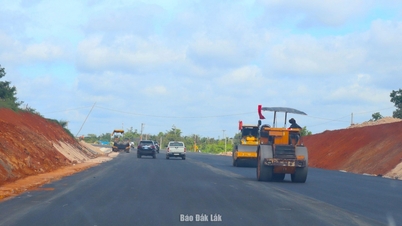
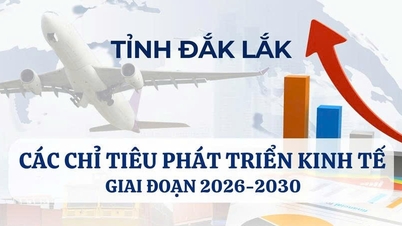
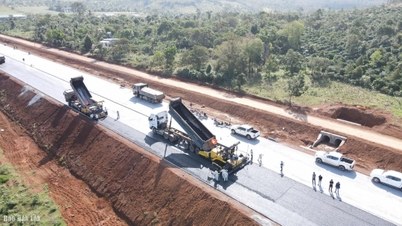
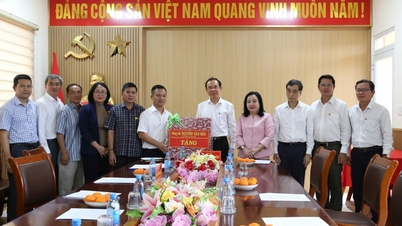
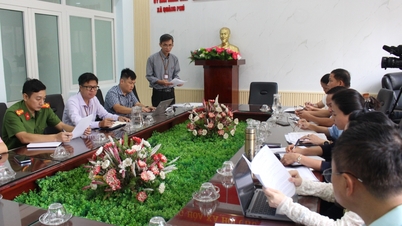
![[Photo] Panorama of the cable-stayed bridge, the final bottleneck of the Ben Luc-Long Thanh expressway](https://vphoto.vietnam.vn/thumb/1200x675/vietnam/resource/IMAGE/2025/9/30/391fdf21025541d6b2f092e49a17243f)


































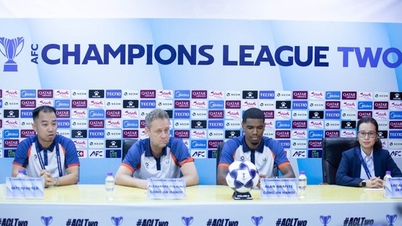

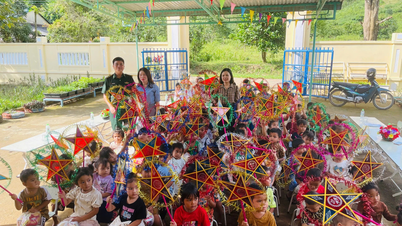



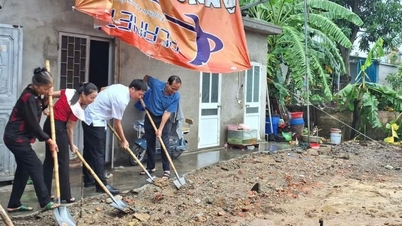
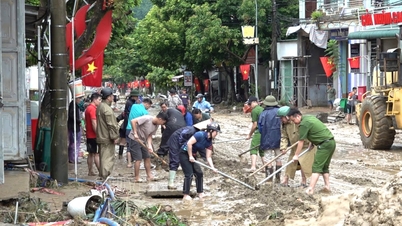


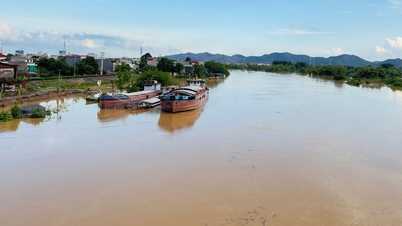














Comment (0)